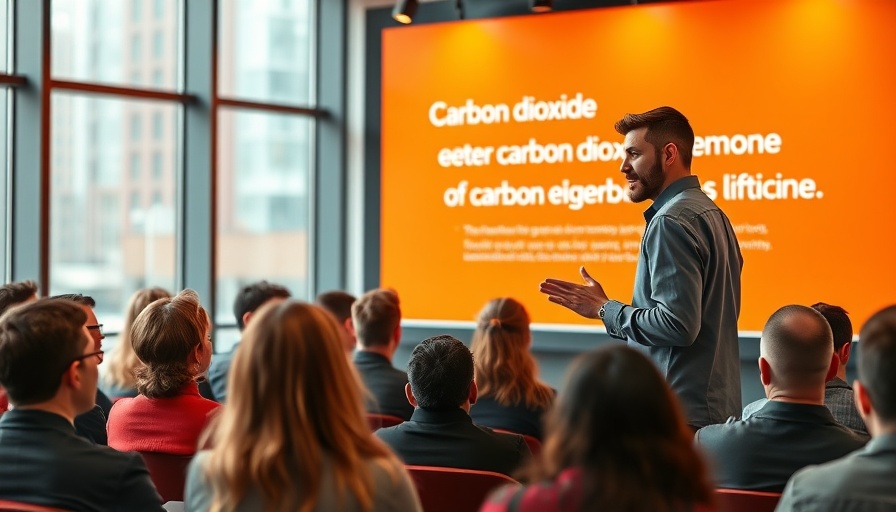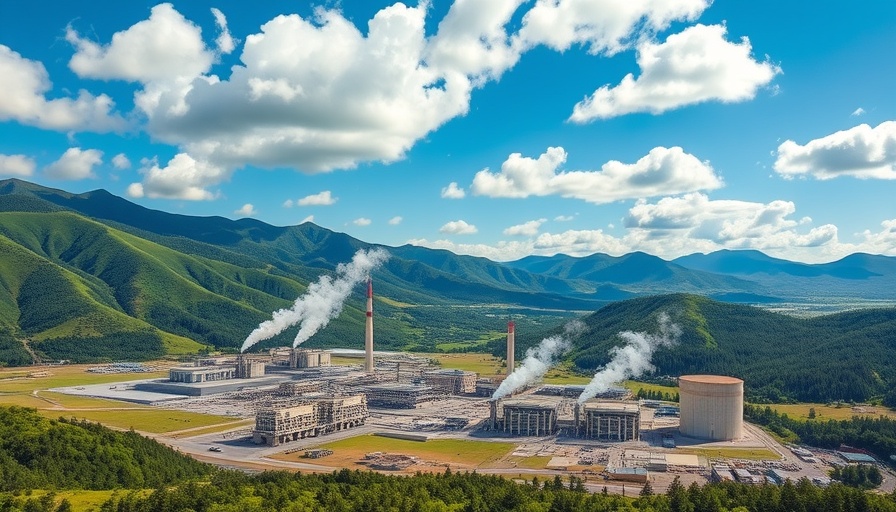
Understanding Trump’s Budget Bill and Its Implications
President Donald Trump’s recently passed budget bill, dubbed "big and beautiful," is stirring heated debates among environmentalists and advocates for clean energy. The bill, which some label as "transformative," is primarily seen as detrimental by those concerned with climate change. By prioritizing fossil fuels over sustainable energy practices, advocates are worried about the potential setbacks to the fight against climate change, especially considering the United States' position as the second largest emitter of greenhouse gases.
The Contentious Provisions of the Bill
Passed with narrow margins, this massive spending bill extends expiring tax cuts and cuts funding for social welfare programs while adding a staggering estimated $3.3 trillion to the nation’s debt. It effectively reverses many green energy initiatives and provisions set in place under former President Joe Biden's Inflation Reduction Act. Critics argue that the bill is laden with measures that will harm the environment to the benefit of the fossil fuel industry.
What This Means for Clean Energy Initiatives
Environmental advocates have expressed concerns that Trump’s budget bill will severely undermine current efforts to expand clean energy solutions. Budgets dedicated to aiding the transition to renewable resources and developing new clean energy projects could see significant cuts or disappear altogether. For instance, the bill intends to roll back critical incentives for renewable energy sources that encourage the production of solar and wind energy, making it increasingly difficult for clean energy projects to compete with traditional fossil fuels.
The Favors of the Fossil Fuel Industry
In stark contrast to the clean energy sector, the oil and gas industry is largely applauding this legislation, which could introduce new opportunities for investment in fossil fuel projects. It aims to resume quarterly oil and gas lease sales that had been curtailed during the Biden administration. As articulated by industry leaders, including Mike Sommers, CEO of the American Petroleum Institute, the legislation is expected to usher in an era of “energy dominance” that could bring more jobs and investment—but at what long-term environmental cost?
Potential Economic Ramifications for Communities
While proponents of the bill insist it will create jobs and stabilize the economy by cutting taxes, critics warn that low-income communities might bear the brunt of its negative impacts. Cutting social safety net provisions like Medicaid can exacerbate poverty levels, raising questions about environmental justice and equity. Lower-income communities often suffer the most from environmental degradation and pollution from fossil fuel industries, making the consequences of this legislation far more complex than mere economic calculations.
Future Predictions and Outlook
As the nation moves forward, the implications of Trump’s bill may shape the environmental policies for years to come. Experts foresee a widening gap between the commitment to combat climate change and actual legislative support. Without robust and supportive policies for renewable energy, hopes for a sustainable future may be dashed, leading to increased carbon emissions and climatic instability.
Conscious Living: The Role of Individuals
While the political landscape continues to shift, individual actions can counterbalance governmental decisions. Eco-friendly products, sustainable living choices, and community-driven environmental initiatives can help promote green practices even in the wake of unfavorable legislation. From advocating for green businesses to adopting a zero waste lifestyle, every action contributes to a wider movement toward sustainability.
Conclusion
Adapting to the changing climate requires an unwavering commitment from both policymakers and individuals. The passage of Trump’s budget bill raises significant concerns about the future of clean energy and our climate initiatives. It’s essential to remain engaged and understand the potential impacts these policies may have on our environment. Join the movement towards sustainable development, support eco-friendly practices, and advocate for policies that protect our planet.
 Add Row
Add Row  Add
Add 



Write A Comment